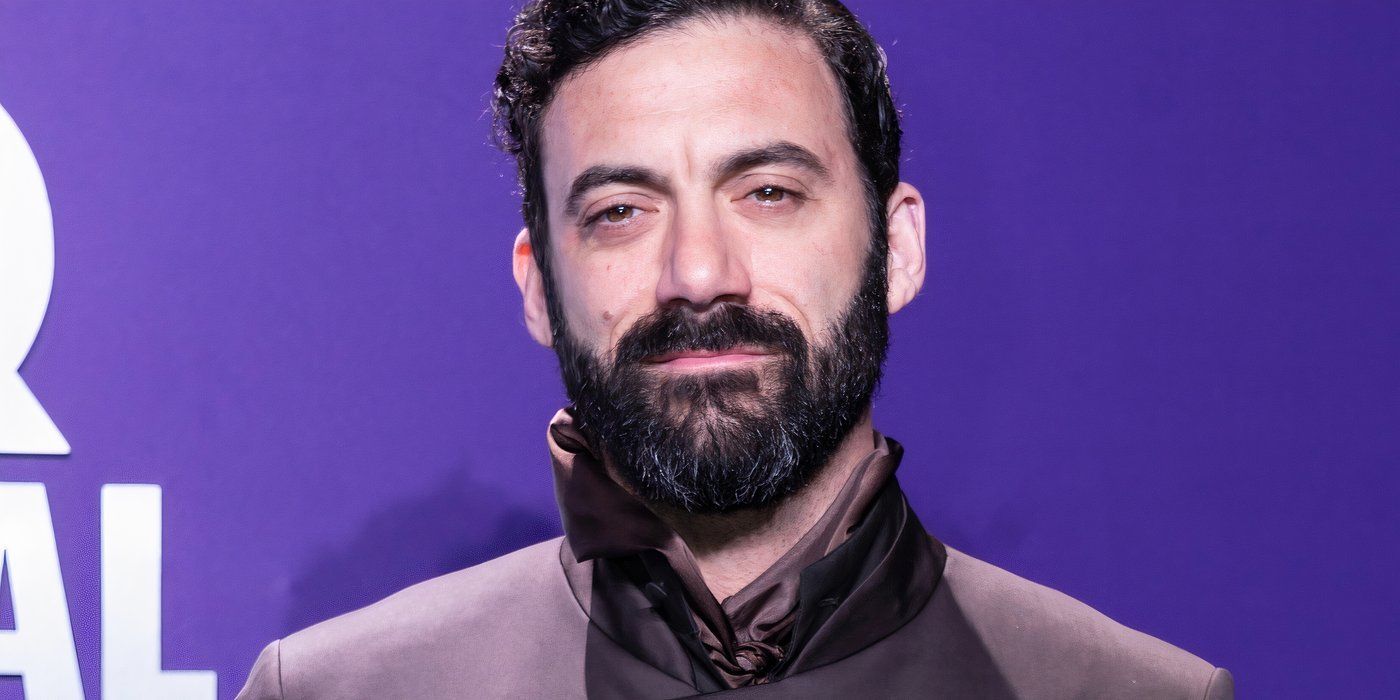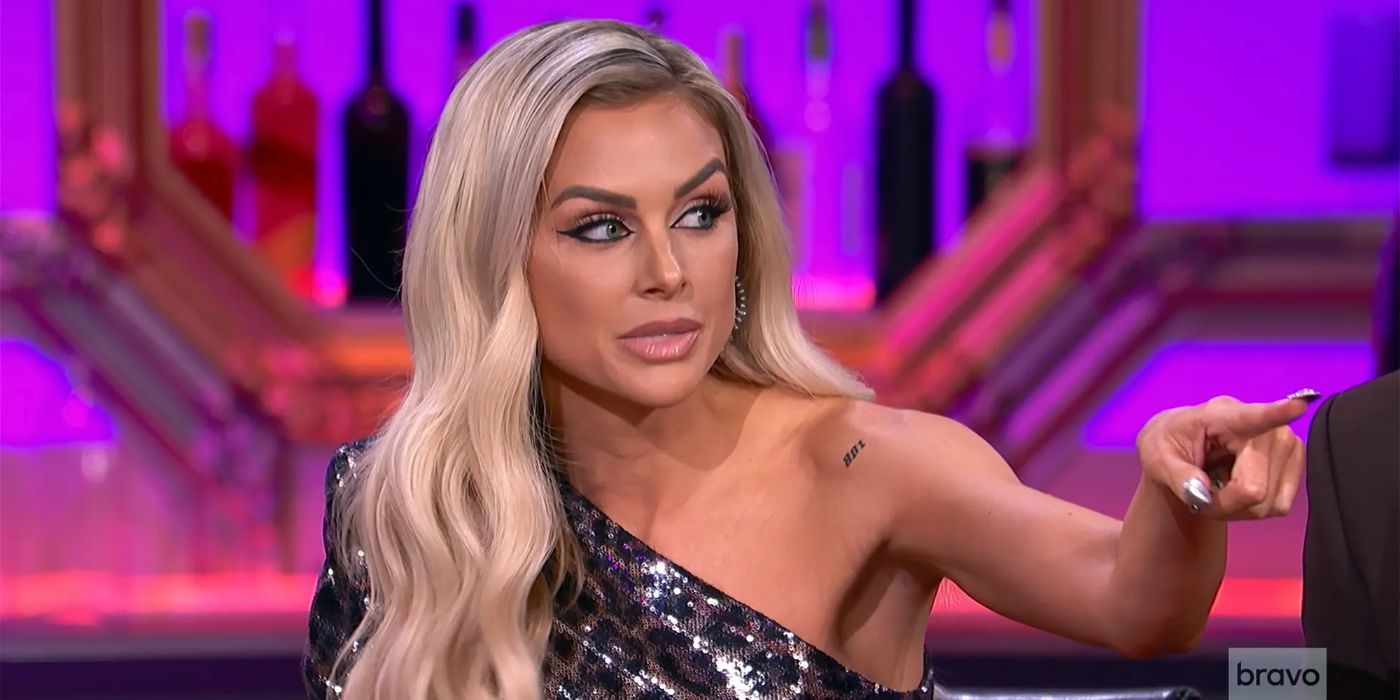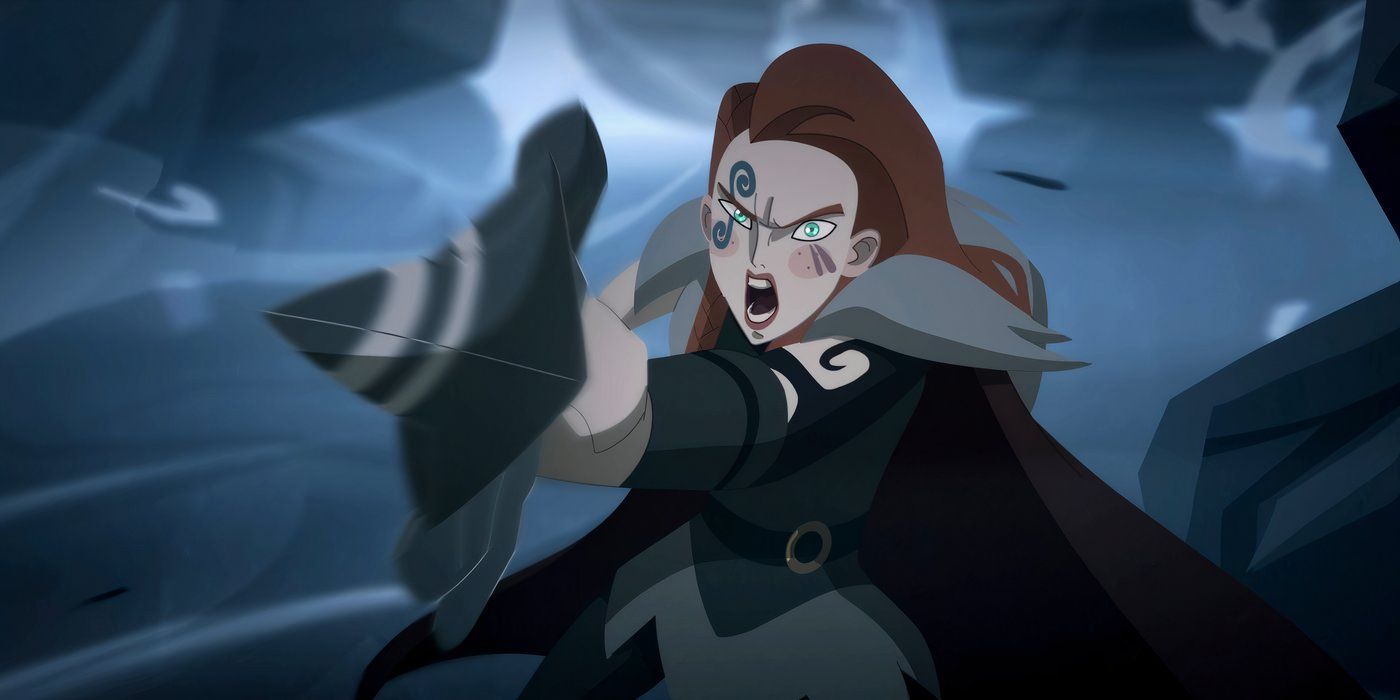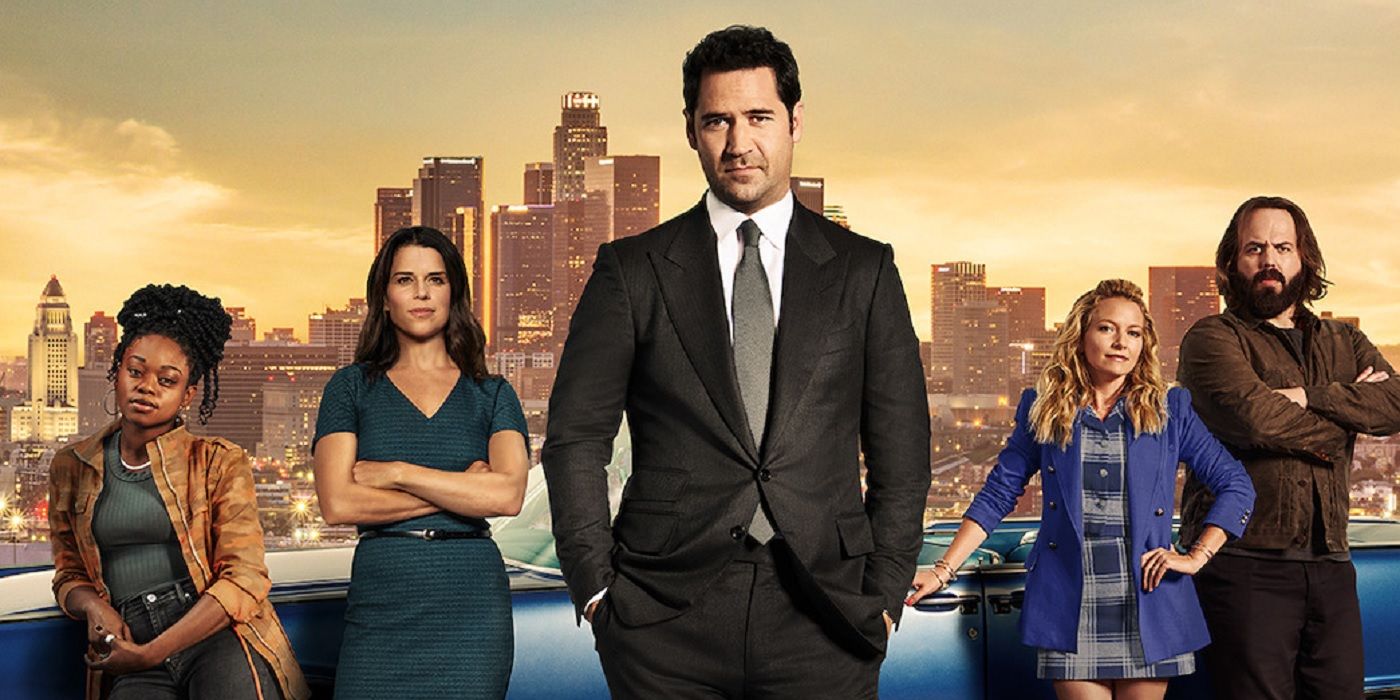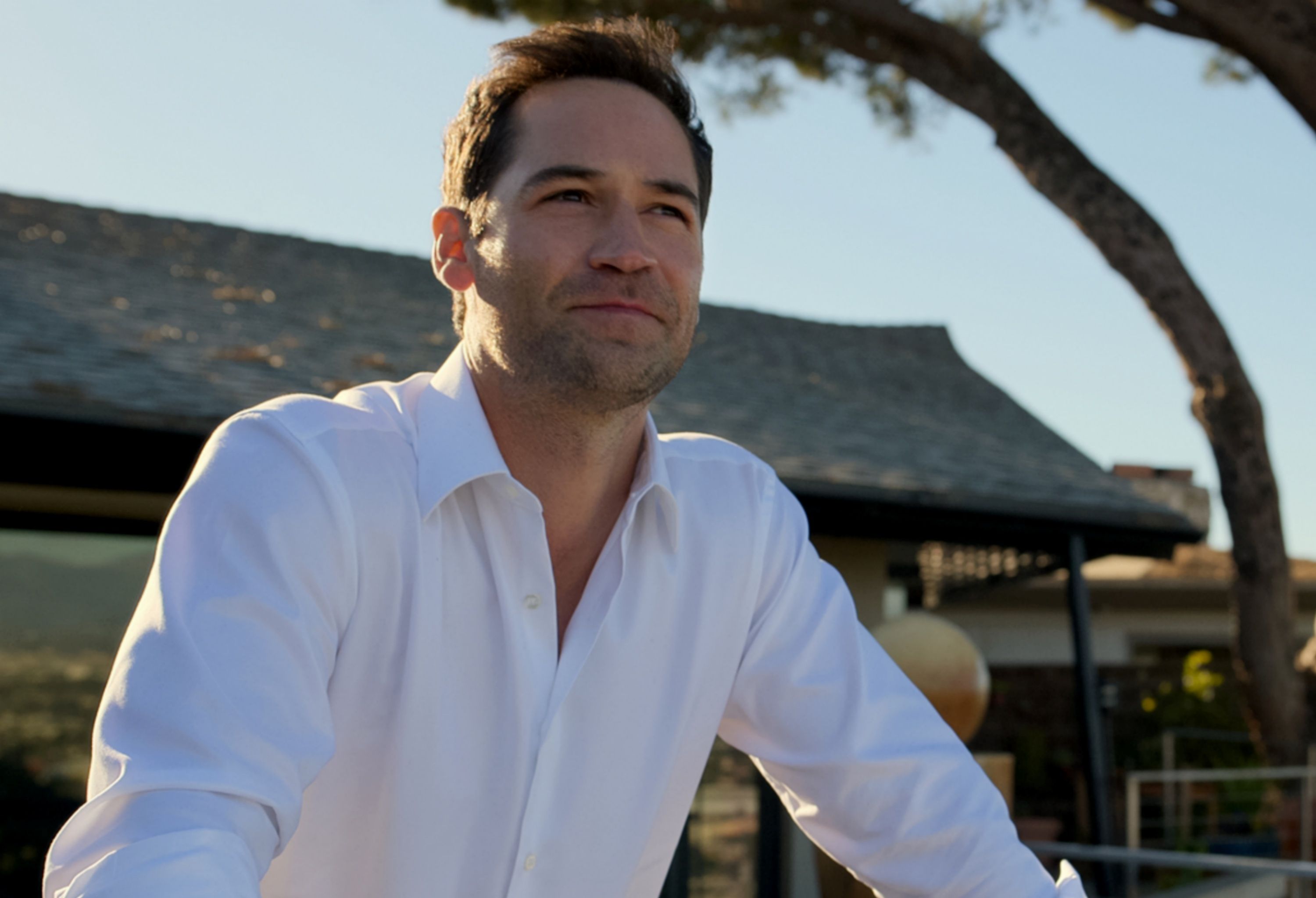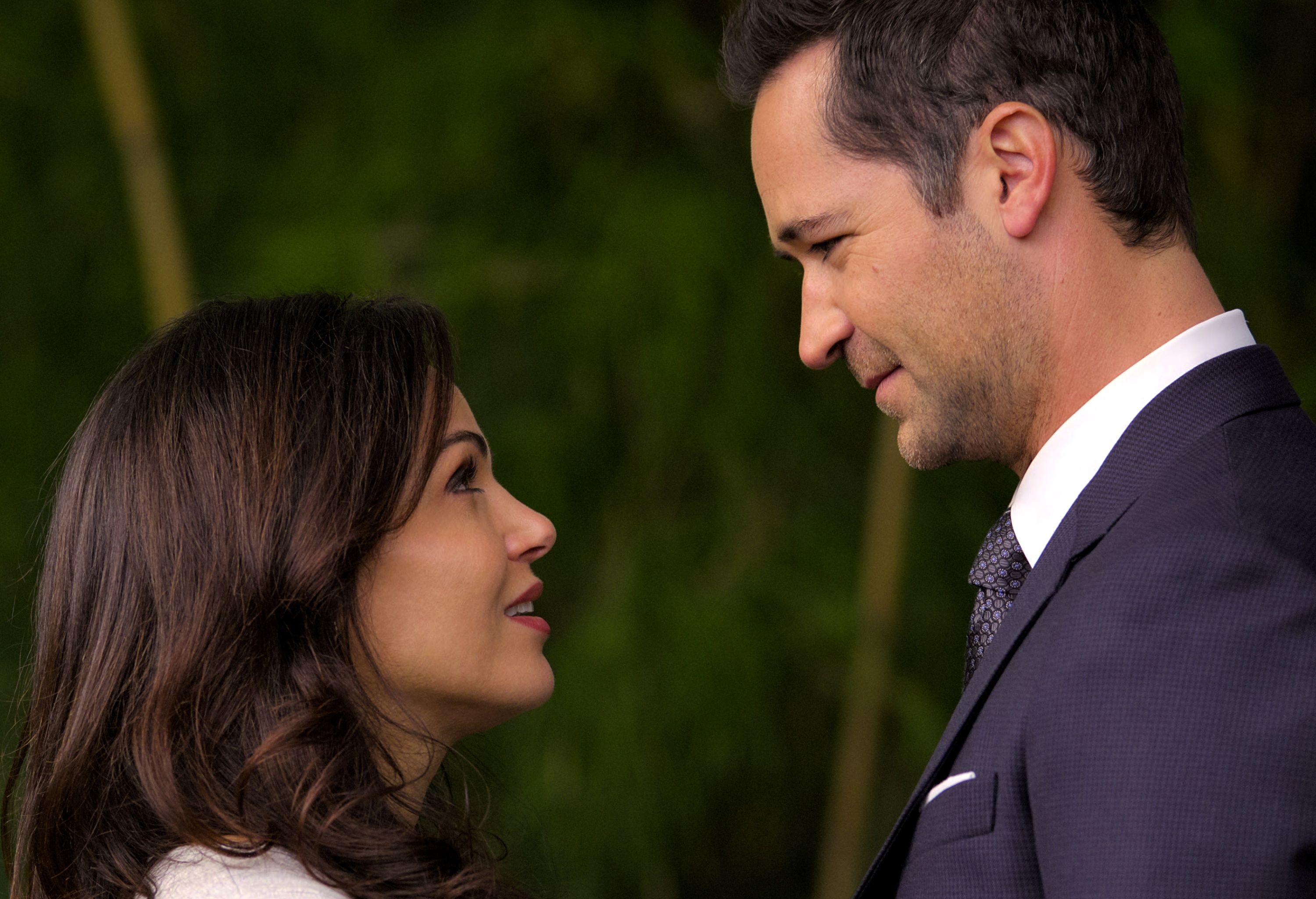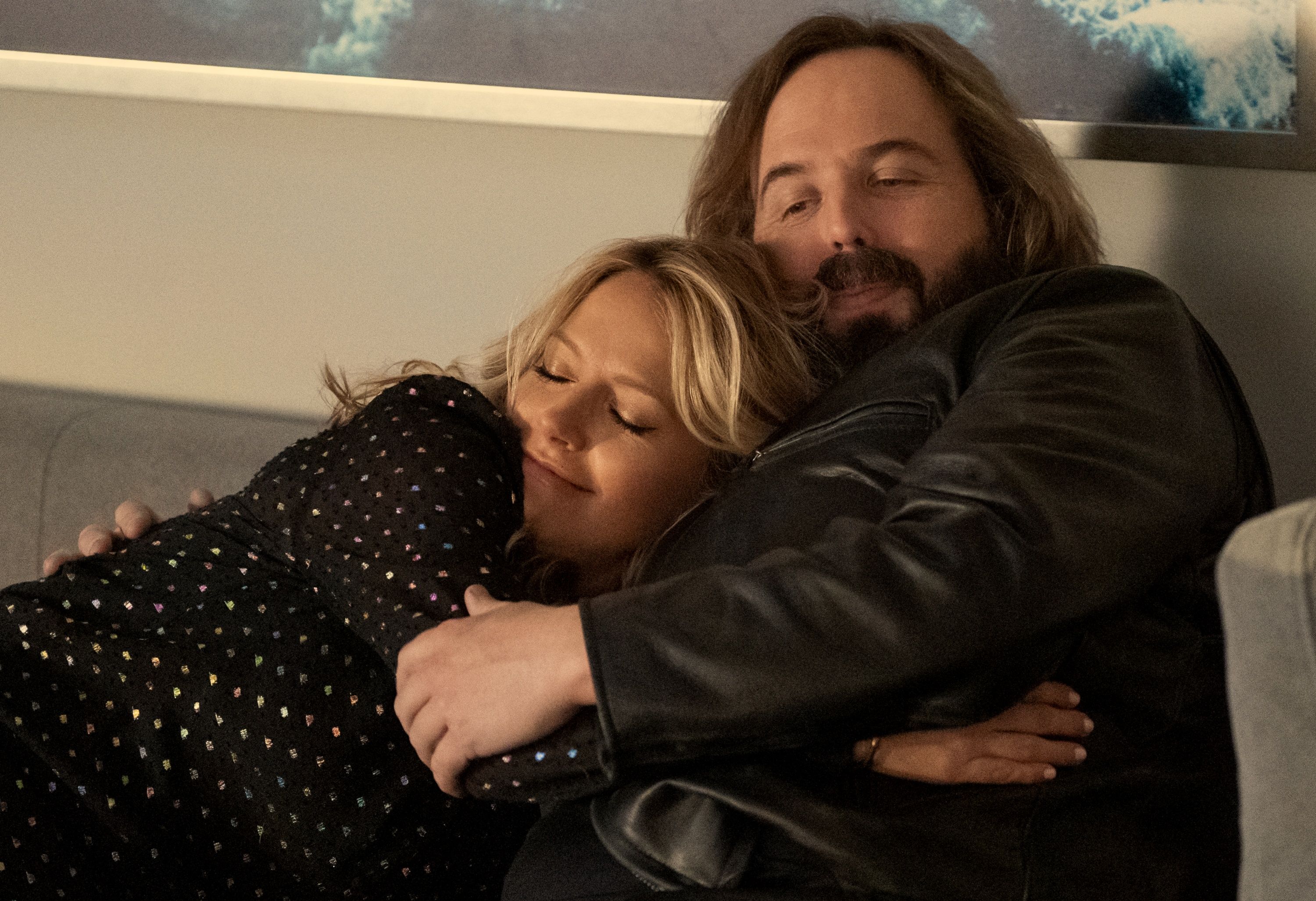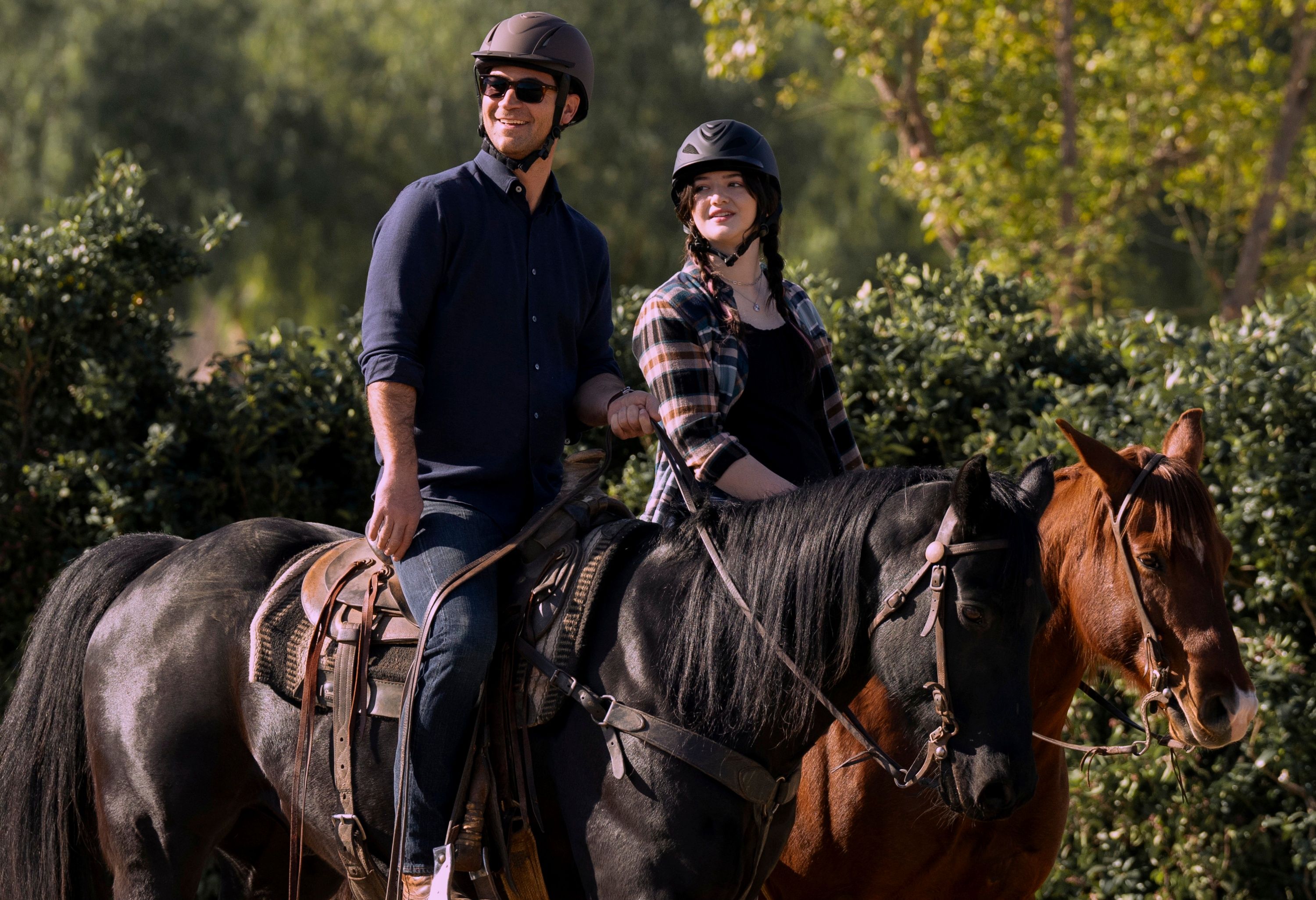The Big Picture
- The second season of Netflix's The Lincoln Lawyer wraps up the case of Mitchell Bondurant with a unexpected twist and raises new questions about Mickey Haller's safety.
- Co-showrunner Ted Humphrey discusses the challenges of adapting the book and making changes for dramatic reasons, as well as the importance of authenticity in law shows.
- Humphrey emphasizes the art of balancing misdirects and surprises in the storytelling process, and expresses the enjoyment of surprising the audience with unexpected twists.
[Editor's note: The following contains major spoilers for Season 2 of The Lincoln Lawyer.]Based on the series of bestselling novels by author Michael Connelly, part two of the second season of Netflix’s The Lincoln Lawyer wraps up the ongoing case of Mitchell Bondurant and who was ultimately responsible for his murder. But while getting a verdict provides some much-needed answers, it also leads to an unexpected and surprising twist and new questions about who’s looking to harm L.A. defense attorney Mickey Haller (Manuel Garcia-Rulfo).
During this 1-on-1 interview with Collider, co-showrunner/executive producer Ted Humphrey talked about figuring out the right beats for the reveals and twists, changes they made to the specific book they were adapting, why this is a series that’s built to be rewatched, how Season 2 co-star Lana Parrilla felt about how things played out for her character, having such a great ensemble cast that any of them could have their own spinoff, creating the perfect wedding, the relationship between Mickey and his daughter (Krista Warner), how worried Mickey should be about his own safety moving forward, and the plan for Season 3, which had a writers room set up to break the next season (prior to the start of the writers strike), even though it doesn’t yet have an official green light.
Collider: When you have a case that plays out over the course of the season, what are the biggest challenges in really keeping that going? Because you have to keep your audience interested, you’re balancing little reveals with bigger reveals, as the case unfolds. Do you make sure to know the resolution of the case that you’re working toward, from the beginning?
TED HUMPHREY: We certainly did. The way it works here, we’re adapting the book, The Fifth Witness, that Michael Connelly wrote. We changed the ending. We changed a number of things, from the book to the show. Some of them were changed to update the book, which was written in the wake of the mortgage crisis in 2008. The story in the book revolved around a woman who was having her home foreclosed on, and that wasn’t particularly relevant to today, so we changed that to the gentrification debate and the world of celebrity chefs and food culture. And then, some of the changes were made for other reasons. The change to the ending of the book, and some other changes, were made for dramatic reasons.
Michael Connelly and I, and (executive producer/writer) Dailyn Rodriguez, got together about a month before we actually brought the whole writers team in and we kicked around the book. We figured out what the major tentpoles of the season would be and where it was going. We definitely had that road map while we were breaking each episode and writing each episode. But you’re right, it’s tricky with a law show, in particular. I was a lawyer and the authenticity of the law is really important to me. I did The Good Wife for a long time and it was very important then, too. I get irked at legal shows and movies where silly things happen that don’t respect the actual timeline in which things in real life happen. A murder is committed, and the next day somebody is on trial. Obviously, things take a lot longer than that in real life and there’s a lot of steps to go through, and I think those steps are interesting.
When you dramatize those steps in the right way, they’re interesting. We found that on The Good Wife, and we found it with this show. In Season 1, we did a whole episode about jury selection and because we felt like there was a really interesting story to tell there, about the little crafty manipulations you do to get the jury you want. That’s a part of the process that most legal stories just breeze right by, but we felt it was interesting. You find ways to find little niches in what you’re doing, and you build out from there. And Michael used to be a reporter for the L.A. Times, which is where he comes by his vast encyclopedic knowledge of L.A. politics and culture and everything else that goes on in it. He knows cops from his days as a reporter. He would always talk to them and they would complain bitterly about everything that cop shows get wrong. So, one of the things in production that’s really important to Michael is getting the cops right, which is more apparent on Bosch than our show.
Is there a lot of time and thought and conversation about how to have enough misdirects during the season to keep viewers guessing, but not have too many misdirects? How do you find that balance to keep people interested in and thinking they know the answer, and then maybe throwing them another curveball, but not doing it too often?
HUMPHREY: That’s the art of the process. There’s a lot that factors into that. Ideally, it happens organically. It’s like the Supreme Court definition of pornography, you know it when you see it. It’s a smell test for whether it’s gonna fly or not, or whether you’ve zigged or zagged too many times. That’s where the experience of having done this for a while comes in handy. You have a certain sense of when you jump the shark.
You resolve this case, as far as finding her not guilty of this murder, but then you throw us another curveball and reveal that she actually did kill a guy, even if it wasn’t that guy. What do you think that says about who she is? And if we were to go back and watch this season, how differently do you think we would feel about her, knowing all of that?
HUMPHREY: You should go back and watch the season and find out. I actually think the show is one that is built to be rewatched. It’s one of those mystery shows where, when you go back and watch it the second time, you will catch things that you didn’t, the first time. You will catch little looks and glances from people, at moments that either went right over your head the first time, or that you just didn’t notice. Upon repeated viewing, you’ll go, “Oh, okay.”
What do you most enjoy about pulling a switch on the audience? As a storyteller, what’s the most fun about getting to play with the audience like that?
HUMPHREY: Before you can be a storyteller, you have to be a story appreciator. It’s the thought of all the great stories I’ve been told in my life that have a twist ending, that have unexpected things happen, and how great that was and how that stays with you. I still remember the end of The Crying Game and The Usual Suspects, and various other things. There is definitely a deliciousness to hopefully being able to throw some unexpected curveballs at the audience and get people to say, “Oh, my gosh, I didn’t see that coming.” It’s fun. Michael’s books just naturally lend themselves to that. I think the twist that’s in The Brass Verdict, which we adapted in Season 1, is brilliant. It was so much fun to bring that to life in Season 1. I can’t take any credit for that. That was all Michael’s doing in the book. It was just fun to be a part of the team bringing that to life.
Did you clue your actress, Lana Parrilla, in on everything from the beginning, or do you try to keep certain things from the actors? Did you intentionally tell them not to read the book?
HUMPHREY: I don’t intentionally tell them not to read the books. I have to be honest, I feel like if I tell them that, then the first thing they will do is to read the book. If they’re gonna read the book, then they’re gonna read the book. It’s not a terrible thing to read the book. With Season 1, I thought very hard about, “When do I tell the actor?” The casting of Trevor in Season 1 was very tricky. We changed that character from the book a great deal, mainly to update the character. The character in the book was a Harvey Weinstein type of movie producer, and Netflix felt that we’ve seen that and done that, so they wanted something fresher. And so, we came up with this video game guy, and doing that was great because it enabled us to work a lot of stuff into the story. There was a whole backstory in the show that wasn’t in the book, that involved his wife. But much like the character in the book, Season 1 depended upon a guy who was not a good guy, who you didn’t like, and yet, at the same time, you felt sorry for him. He could actually sell you on his sob story. It was a really hard line to balance. So, we looked at a number of actors. There were many fine actors who we just weren’t buying. It was getting to the point where I felt like, “Gosh, have we written something that can’t be played?” And then, Chris Gorham came in and knocked it out of the park. I absolutely had a tear running down my eye, once he was done with that big speech in the first episode. So, I toyed with the idea of, “Do I tell this guy that, in fact, he did it?” He really made me believe that he didn’t with that speech. But you can’t hide things for too long.
How did Lana Parrilla react to learning how everything would play out with her character?
HUMPHREY: We had discussions about it, to be perfectly honest, I think she struggled with it a little. One thing that we did in the show that is not in the book is that Mickey and Lisa have a romantic relationship. In the book, Lisa is this not very likable person that, in fact, Mickey finds quite annoying. We felt that it would dovetail very well with his personal story to have him have a relationship with this woman, and they played that beautifully. And so, I think she struggled with reconciling those two halves of the character a little bit, but we talked through it and we figured it out.
You have one relationship that blows up by the end of the season, and then another that ends up in marriage. The whole wedding is so beautiful and so well-suited to the characters. As far as I’m concerned, a wedding with a cake from Porto’s is a perfect wedding. How fun was it to create a moment like that?
HUMPHREY: It’s a ton of fun. Lorna and Cisco are probably the two characters from the books that we have expanded upon the most in the show. They’re characters in the books, but they’re a little bit background characters because the books are Mickey’s story, told from Mickey’s point of view. Any time you see Lorna and Cisco in the books, it’s from Mickey’s point of view, and obviously, in a show, you can’t do that. You have to build out those characters. So, we’ve had a lot of fun building those characters. In the books, they get married, but the wedding happens off-screen. It’s just a thing that happens. So, we decided that was something we were gonna do, and we all had fun figuring out. The mariachi band worked beautifully. It was fun to come up with what the wedding would be, that these two would have. I thought we did a good job of figuring that out.
It just all felt really suited to those characters and that everybody who helped put it together was able to pull it off because they knew them and cared about them. You don’t always get that feeling on a TV show.
HUMPHREY: No, and it’s a difference between streaming and network. Back when I did network TV, and you had 22, 23, or 24 episodes a season to work with, even on The Good Wife, in essence, on some level, it was a legal procedural. Every episode had a case, so maybe 80% of the episode was devoted to that crime story, and then maybe 20% of the episode was devoted to the character stories. But you have 22 episodes, so over the course of seasons, you had a lot of time with the characters to build those relationships. With streaming, it’s a little tougher. You’ve only got 10 episodes a season, and our show is a plot-forward show, where we’re dealing heavily with this case, so a lot of our attention is focused on that. So, you’ve gotta find ways to shortcut that process and give the viewer the same insight into these characters, in a little bit less time. Maybe in two seasons of this show, we get as much of that as we get in one season of a network show. It’s just one of the differences with what we’re doing now.
I love a show that has an ensemble where I could watch any of the characters in their own show because it feels like they have such a rich life.
HUMPHREY: I absolutely think every one of these characters should have their own show. You should call the powers that be and tell them that.
I also love how the relationship between Mickey and his daughter has developed, and that you allow for time to let that dynamic grow.
HUMPHREY: It’s one of my favorite parts of the show. Krista Warner, who plays Hayley, is terrific and lovely to work with. The relationship with his daughter is a big part of the books. Ours is a little different. The Spanish thing is part of what makes it different. That’s not in the books. But it’s a big part of the Bosch books, too. Michael has a daughter, and I think both Bosch and Mickey Haller’s relationships with their daughters are influenced by his relationship with his daughter. I don’t wanna speak for him. I’m just guessing, but I think he’s also said that, so it’s fine. I have kids, and certainly my relationship with my kids goes into the things that I make. What I’m proud about with this show is that, while we are a plot-forward show that tells a story about a defense lawyer and criminals, and various things like that, we’re also a show about real human beings, and there’s nothing more real and human than a father and a child having a conversation and having a relationship. That’s just something universal.
You leave this season in a spot where clearly someone still wants to kill Mickey. Is that a story that you want to continue to a possible third season? Should he be more concerned with his well-being and safety in the future?
HUMPHREY: Yes. The season ends with a cliffhanger that clearly tees up the next season. The last 10 minutes of this season are the first couple of chapters of the next book that we’re gonna adapt. We had begun the process of that. We had convened our writers and began the process of that when the writers strike happened. Hollywood is obviously in a state of crisis right now. We obviously had to stop, as soon as the strike happened, but we’re very excited to get back to that, as soon as the strike is resolved. We are not officially greenlit for a third season. Netflix won’t do that until after the numbers come out from the second season, but everything looks positive. It was a vote of confidence in the show that they greenlit a writers room for a third season. So, we know where we’re going. We know what we’re basing it on. A danger to Mickey is part of that. It’s a thing in the book. I call Michael the modern-day Raymond Chandler because his books are these California noirs. Robert Altman’s film, The Long Goodbye, is based on Raymond Chandler’s novel, and Elliott Gould is in that, who’s actually in our show. What Mickey shares with the heroes of noir novels like that is that somebody’s always trying to hurt him. Real-life criminal defense attorneys’ lives are not nearly as dangerous as Mickey’s. That’s the one thing about the show. I love the authenticity of the show, and we strive to make it as authentic as possible, but that’s the one area where there’s a nod to the drama of the situation. Mickey’s job seems very dangerous, but that’s part of what makes it exciting and what makes it fun.
Does anyone even plan out five seasons of a series anymore, when they pitch a show? Do you try not to think past what the next season would be?
HUMPHREY: It depends on the series. In the case of this series, we’re fortunate enough to be adapting a best-selling series of books, so you know, going in. And the people that might buy the show know, going in, that you’ve got this well of material to draw from, that would lend itself to multiple seasons. If it’s an original thing that you’re pitching, you might have to do a little bit more leg work to explain to them what they can’t already see on the pages of a book. They just want to know that something has legs, unless you’re pitching a limited series.
Did you always know that Gloria Dayton, aka Glory Days, would have the fate that she has, at the end of this season?
HUMPHREY: Yes, that’s in the book. Did we always know that would happen at the end of this season? It was part of that conversation we had when we were mapping out the tentpoles of the season, so yes, we always knew. We struggled with the ending of Season 1. There wasn’t a natural cliffhanger. We invented one, which I was ultimately very happy with because it propelled us into Season 2. This one was there.
The Lincoln Lawyer is available to stream at Netflix.


